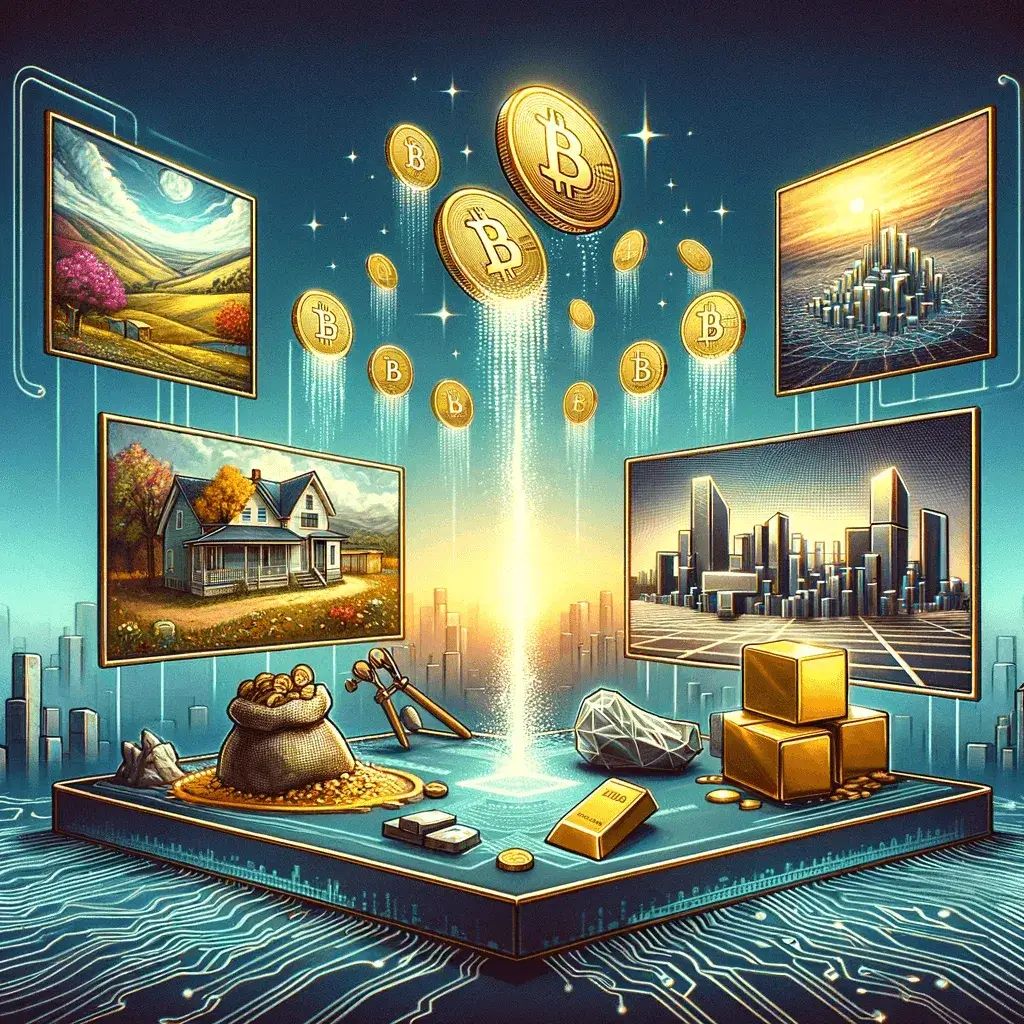If you’re seeking financial freedom through crypto assets and global investments, there’s a silent revolution you need to understand as soon as possible: asset tokenization. In recent years, one of the most talked-about words in the world of finance and technology is tokenization.

Asset tokenization is changing how the world deals with property, and its impact on the financial market is immense.
If you’ve already heard of real estate tokenization, prepare to understand how this technology is democratizing access to stocks, ETFs, and other financial instruments.
Tokenization: Your Passport to Global Markets
Imagine buying a fraction of an Apple stock or an ETF from the Frankfurt stock exchange while watching the sunset on a Saturday on a paradisiacal Caribbean beach. The tokenization of financial assets is making this a reality, even without needing an account with a foreign brokerage firm. This is just one example of the countless possibilities that asset tokenization has to offer.
Tokenization is not a complex concept reserved for experts
In fact, it is one of the most democratic and powerful innovations in the world of finance. This guide will explain, in a simple and direct way, what it is, how it works, and why it should matter for your investment journey.
What is Asset Tokenization?
Objectively, asset tokenization is the process of transforming a real asset into digital tokens registered on a blockchain. Each token represents a fraction of that asset and can be bought, sold, or transferred online.
Practical example:
Real World Asset: A lot of 1 million Microsoft shares valued at 500 million dollars.
Tokenization: The “digitization” and “fractionalization” of these shares into 500 million tokens.
Result: Each token is worth $1.00 and represents 0.002% ownership of a share that is part of the tokenized lot. Now, anyone in the world can be a “shareholder” of Microsoft without needing documents recognized by the American Government or even needing to have an account created with a US stockbroker, because the tokens are on the blockchain and can be traded by anyone from anywhere in the world!
The Token Issuance Process:
How Does an Asset Become a Token?
The “birth” of a Real World Asset (RWA) token is not magic, much less something done by a teenage hacker in a basement. It is a structured process that involves several entities to ensure the security, legality, and trustworthiness of the digital asset.
Generally, the process works as follows:

1. Asset Origination
The asset owner (in our example, Microsoft shares) decides to tokenize.
2. Legal and Regulatory Structuring
Legal firms and regulators verify compliance and ensure the token represents the real asset.
3. Tokenization Platform
Specialized companies create the smart contract on the blockchain, defining rules and governance.
4. Custodian
An entity secures the real asset to guarantee its physical existence.
5. Token Issuance
Tokens are generated and made available to investors on an exchange or platform.
6. Trading and Liquidity
Investors can buy and sell tokens quickly and transparently, either via an exchange or directly on the blockchain (P2P).
Entities Involved in Tokenization
All that process involves a couple of entities, usually represented by one or multiple companinies. The most common entities related to the asset tokenization process are:
- Issuer: Owner or institution that decides to tokenize the asset.
- Tokenization Platform: Company that creates and manages tokens on the blockchain.
- Custodian: Responsible for keeping the physical or financial asset secure.
- Exchange: Digital marketplace where tokens are traded.
- Investors: Individuals or legal entities that purchase the tokens.
Advantages of Tokenization – Why is tokenization a revolution for investors?

| 1. Access to Global Investments 24/7 | 2. Low Entry Value for High-Value Assets |
| Forget limited trading hours. Tokenization allows you to buy and sell financial assets — such as shares of American companies, European ETFs, and global REITs — at any time, from anywhere in the world. Your investment passport is your digital wallet, not your country of origin. | Always wanted to invest in real estate funds (REITs) or major global indices, but initial capital was an obstacle? Tokenization solves this by fractionalizing high-value assets into smaller pieces. You can buy a small part of a commercial building in New York or a fraction of a stock portfolio, making previously inaccessible investments available to everyone. |
More Advantages: Liquidity, Transparency, and Total Security

| 3. Increased Liquidity | 4. Transparency and Total Security |
| Assets like real estate and some investment funds are difficult to sell quickly. Tokenization increases the liquidity of these assets. You can sell your share at any time, without the need to find a buyer for the entire asset, transforming a long-term, low-liquidity investment into one with greater flexibility. | All token transactions are recorded on a blockchain, an immutable and transparent technology. Every buy and sell is validated by the network, drastically reducing the risks of fraud. Asset ownership is publicly and securely recorded, eliminating the need for expensive and bureaucratic intermediaries. |
Risks to Consider
No Investment is Risk-Free…
…and tokenization is no different.
- Regulatory Risk: The legal framework is still evolving. Only invest in projects with a solid legal structure.
- Secondary Liquidity Risk: The secondary market for some tokens can still be small.
- Platform Risk: Failure or hacking of the issuing platform or broker can result in losses.
Conclusion: The Future is Tokenized

Tokenization is not a passing fad; it is the definitive bridge between the traditional world of finance and the decentralized future.
For investors seeking financial freedom, it offers an unprecedented range of opportunities to diversify, increase liquidity, and take control of their assets in a global market.
Disclaimer
Is this financial advice?
No. This is an educational guide. Always do your own research (DYOR) and, if necessary, consult a professional advisor before any investment.

